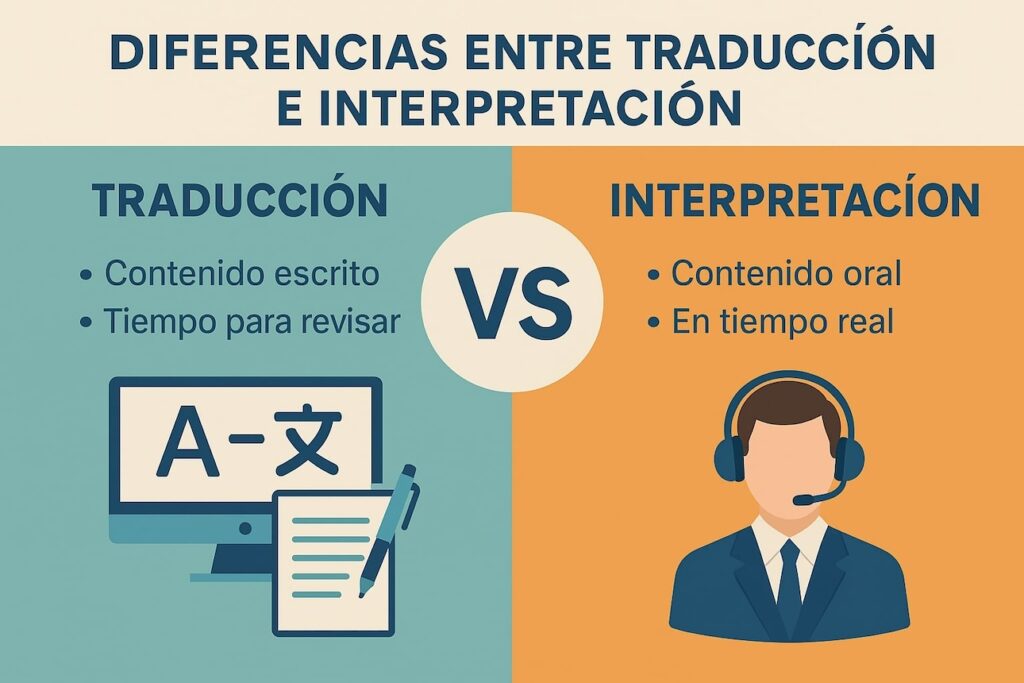Although they are often used as synonyms, translation and interpretation They are two distinct disciplines within the world of languages. Both aim to convey a message from one language to another, but they are applied in different contexts and require unique technical skills.
The translation refers to the transfer of written content. This can include legal documents, technical manuals, books, or websites. A translator takes time to research, review, and ensure that the text retains its original tone and meaning. In contrast, interpretation It is the oral transfer of language, and it occurs in real time. An interpreter works in conferences, meetings, hospitals, or courtrooms, and must react instantly to convey the message faithfully.
Another important difference lies in the type of training. While a translator requires precision, mastery of linguistic tools, and writing skills, an interpreter requires mental agility, a good memory, and a deep understanding of the culture of both languages. Both tasks are key to global communication, but choosing the right professional depends on the format of the message: if it's written, you need a translator; if it's spoken, you need an interpreter.


